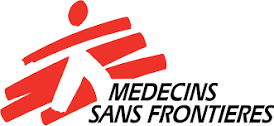Zambia: MSF responds to a surge in cholera amid regional outbreaks
With the resurgence of cholera cases since mid-December 2023 in the capital and several provinces of Zambia, Médecins Sans Frontières (MSF) is involved in the emergency response alongside the Ministry of Health. The focus is on supporting patient care and fighting the spread of the outbreak in Lusaka and Ndola, the two largest cities in the country.
Following a drastic increase in cases in January 2024, MSF sent emergency teams to support the Zambian Ministry of Health in a major response against a cholera outbreak, the largest ever recorded in the country. Cholera appeared in Zambia in October 2023 in the capital, Lusaka, and has now spread to all provinces of the country; meanwhile this diarrhoeal disease is hitting countries across southern Africa.
“Cholera is a disease from which no-one should die today. While it was being eliminated, there has been a resurgence of outbreaks around the world in recent years. With cholera outbreaks increasing in southern Africa, it is crucial to act quickly to treat those who are sick but also to ensure that cholera does not spread in the meantime,” explains Carla Melki, emergency coordinator for MSF in Zambia. The treatment, mainly through patients’ rehydration, is simple and effective, but without care a person can die of cholera in a few hours. Also, since cholera is linked to the absorption of contaminated water or food, access to clean, drinking water is essential to stem its spread. “Awareness, prevention and active case surveillance activities through a network of community relays and neighbourhood committees are just as essential as medical care,” continues Carla Melki.
So far, Zambia has recorded over 19,000 cases and almost 700 deaths. This worrying development required a shift of national healthcare resources to strengthen medical structures at the earliest stage of the epidemic outbreak.
In this context, MSF is collaborating with the Zambian health authorities to provide medical, logistical and epidemiological support to health services in two of the most affected urban centres: Lusaka, and the city of Ndola in the Copperbelt region, in the north of the country, on the border with the Democratic Republic of Congo (DRC). Sixty-one MSF staff members currently work in the country alongside 340 volunteers affiliated with the Ministry of Health to respond to this emergency.
In Lusaka, our teams support health personnel in cholera treatment centres (CTCs) located in the Kanyama and Chawama subdistricts where nearly 200 medical sites provide patients with oral rehydration salts (ORS) and first aid until they are referred to a more equipped facility if symptoms persist. To monitor more severe cases, MSF teams operate a network of ambulances available 24 hours a day, seven days a week. Around the capital, a system of 14 intermediate care facilities known as "Oral Rehydration Points" has been set up to relieve hospital overcrowding.
In addition, water sanitation specialists supervise a network of 178 chlorinated water points around Lusaka on a daily basis, and distribute kits containing soap, chlorine and jerry cans to homes where new cases of cholera are reported, in order to provide people with clean drinking water. Hygiene awareness activities are carried out in the areas around Lusaka, with a network of several hundred volunteers, involving families in implementing preventive measures. Health promotion helps to limit the spread of the disease through advice given to families on how to best protect themselves.
In the Copperbelt province, MSF supported the opening of a new 46-bed CTC in the city of Ndola, improving patient care. The CTC capacity may change depending on how the outbreak evolves. Our teams also support health ministry staff in five other health centres for front-line care, as well as the referral system for hospital care. Cholera epidemics require a localised and rapid medical care response, which must be combined with access to safe drinking water and a community approach for the early identification of cases.
In the area of Massala, which contributes more than 50 per cent of cholera cases in the Ndola district, we are working simultaneously on several fronts: setting up a patient isolation and treatment unit, conducting a specific triage at the health centre level and collaborating with epidemiological surveillance services and community stakeholders. This allows our teams to detect “clusters” of cases. Based on case geolocation, activities related to water, hygiene and sanitation are carried out through the chlorination and rehabilitation of water points, as well as the distribution of water and hygiene kits at the household level in most affected areas.
Our medical teams are also contributing to the development of the forthcoming national protocol to address the cholera epidemic.
A vaccination campaign, another effective and crucial method in the fight against cholera, was recently carried out by the health authorities in certain localities of Zambia, particularly in the capital. However, the current global shortage of oral cholera vaccines is a real cause of concern for MSF in the region, as cholera affects people in southern Africa in multiple places, including areas which were until now relatively spared such as the Copperbelt province in Zambia. In this context, since the beginning of February, other MSF teams have also begun an intervention against the cholera epidemic which has been raging in the Lubumbashi region across the border, in the Democratic Republic of Congo.
Hannah Hoexter
